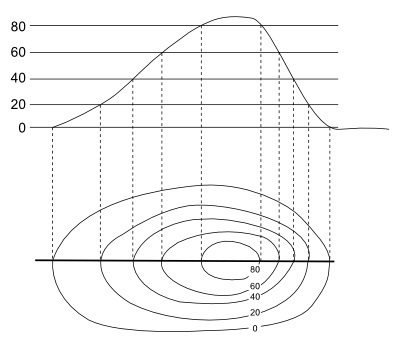THE Guillain-Barré Syndrome (GBS) is an inflammatory polyradiculoneuropathy whose main characteristic is the acute attack of nerves peripheral and cranial. This problem is serious, rapidly evolving and potentially fatal.
This disease occurs all over the world and makes no distinction between sex, age or social class, and can therefore affect anyone. Annually, in North America, two to four cases of the disease appear in every 100,000 inhabitants, a pattern that is repeated in the rest of the globe.
→ What are the causes of Guillain-Barré Syndrome?
GBS still has an unknown cause, but many authors consider this problem to be of an autoimmune nature. Other authors believe that it is related to the body's immune responses after contact with an infectious agent. Some studies show that about 60% of patients with the syndrome had infections days before the onset of signs and symptoms of GBS.
The role of infections in the development of GBS is that, when an antigen enters the body, specific antibodies are produced. These antigens may present molecular mimicry with molecules present in peripheral nerves, that is, the molecules present in the nerves resemble the antigen, which causes the antibodies to attack the nerve itself. body.
Among the health problems related to GBS, we can mention upper respiratory tract infections, viral diseases such as herpes and hepatitis, cancers and gastrointestinal infections. Recent studies have linked GBS with virus infection Zika, transmitted by the bite of the Aedes aegypti.
→ What Can Guillain-Barré Syndrome Cause?
GBS starts with a feeling of numbness and pinpricks in the feet and hands. Later on, pain in the lower back and lower limbs, lack of reflexes and progressive muscle weakness may appear, starting in the legs and later affecting the arms. This weakness can affect, in addition to the limbs, respiratory muscles and cranial nerves. When it affects cranial nerves, facial paralysis can occur. In addition to these symptoms, patients with GBS may have difficulty in swallowing, difficulty breathing, and lack of respiratory movement.
The disease usually develops severe symptoms quickly, lasting approximately three weeks. After this period, a phase of stability begins and, later, there is regression of the syndrome.
This syndrome is considered potentially fatal, as it causes difficulty in swallowing, which, in turn, can cause aspiration of food and fluid into the lungs (bronchoaspiration), resulting in infections and even obstruction of the airways. airlines. Many patients also have complications due to the long period of immobilization.
→ Does Guillain-Barré Syndrome have a cure?
GBS is curable, but recovery can take weeks and even months. Some studies indicate that, in 95% of cases, there is complete recovery of the patient; in others, only moderate muscle weakness may occur. It is also worth noting that 2% to 5% of patients do not survive the disease.
In all cases, hospitalization is necessary for the physician to perform immunomodulation, that is, control of immunological reactions. In addition, for an efficient recovery, physical therapy, nutritional support, and measures (usually the use of heparin) to prevent pulmonary thromboembolism should be performed. In some cases, mechanical ventilation is required.
By Ma. Vanessa dos Santos
Source: Brazil School - https://brasilescola.uol.com.br/saude/sindrome-guillain-barre.htm

